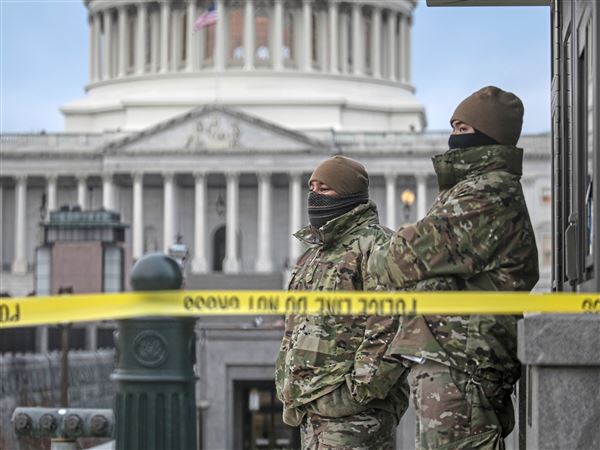Richard Katilius kept repeating himself.
"I did not kill my wife of my own volition."
"I do remember the last two to three seconds."
"She was still standing when I let go of her."
"I should have started CPR immediately."
"She was stone cold."
Katilius, who has been diagnosed with schizoprenia, pleaded guilty in May to third-degree murder for the strangulation death of his wife, Linda, 63, on March 23, 2016, inside their home in the Blackridge section of Wilkinsburg.
On Tuesday, Allegheny County Common Pleas Judge Thomas E. Flaherty ordered Katilius, who wobbled as he stood at the lectern to speak, to serve 10 to 20 years in state prison.
He has already served more than three years.
According to Katilius' rambling statement to the court, he returned home from work that evening and drank three glasses of wine.
He said repeatedly that he believed the drink was "spiked."
Katilius fell asleep, he said, about 7 or 8 p.m. and woke up at 11:10 p.m. in the spare bedroom. He said he sleepwalked in to where his wife was and woke up as she ripped the necklace off his neck.
His hands were around her throat, choking her.
He let go, Katilius told the judge, and figured his wife would wake up. He went downstairs to see if anyone else was in the house and then cleaned the side porch, "knowing it wouldn't get done if I went to jail."
Within five minutes, he said, he returned to the spare bedroom. His wife had not woken up, and their dog was whimpering by her feet.
Katilius, 64, said he knew the woman was dead, so he decided to pack up their dog, his crate and belongings, and headed to his brother-in-law's house.
Katilius called and told him he'd killed Linda, he said. Katilius also called both his and her workplaces to let them know neither would be at work the next day.
"I love my wife with all my heart from beginning to end," he said.
Defense attorney Steve Townsend told Judge Flaherty that his client had been committed to a psychiatric hospital in 1997 and diagnosed with delusional disorder.
Although Katilius took medication prescribed for schizophrenia — he said for two years — he was not on any at the time of the crime.
After his arrest, the behavior clinic at the jail found Katilius was not competent to stand trial.
He spent eight months at Torrance State Hospital, where he was diagnosed with chronic schizophrenia and spectrum disorder, his attorney said.
After Katilius was returned to the jail, Mr. Townsend said his client was denied his medication by the staff there.
"I don't think our system is broken," the attorney said. "But it does need to be modified, and it does need to be addressed."
He argued that his client should not be locked away for the rest of his life.
"He's still a human being. He does need treatment.”
Assistant District Attorney Jennifer Berosh, who acknowledged the defendant’s mental illness, asked Judge Flaherty to order Katilius to serve 15 to 30 years in prison.
"What I didn't hear from him was any sign of remorse over Linda's death," the prosecutor said. "Strangulation is very up close and personal," Ms. Berosh said.
She noted, too, that Katilius called several people that night, but never 911.
Mrs. Katilius worked as a lab technician at UPMC Presbyterian and as a realtor. She was active at Beulah Presbyterian Church of Churchill on the worship committee and children's ministry. She and her husband had been married 20 years.
Friends who submitted letters to the court described her as kind, soft-spoken and giving.
"Linda never, ever said anything bad or had an unkind word about anyone," said Lynn Apte, a friend who spoke.
First Published: July 30, 2019, 5:05 p.m.

















